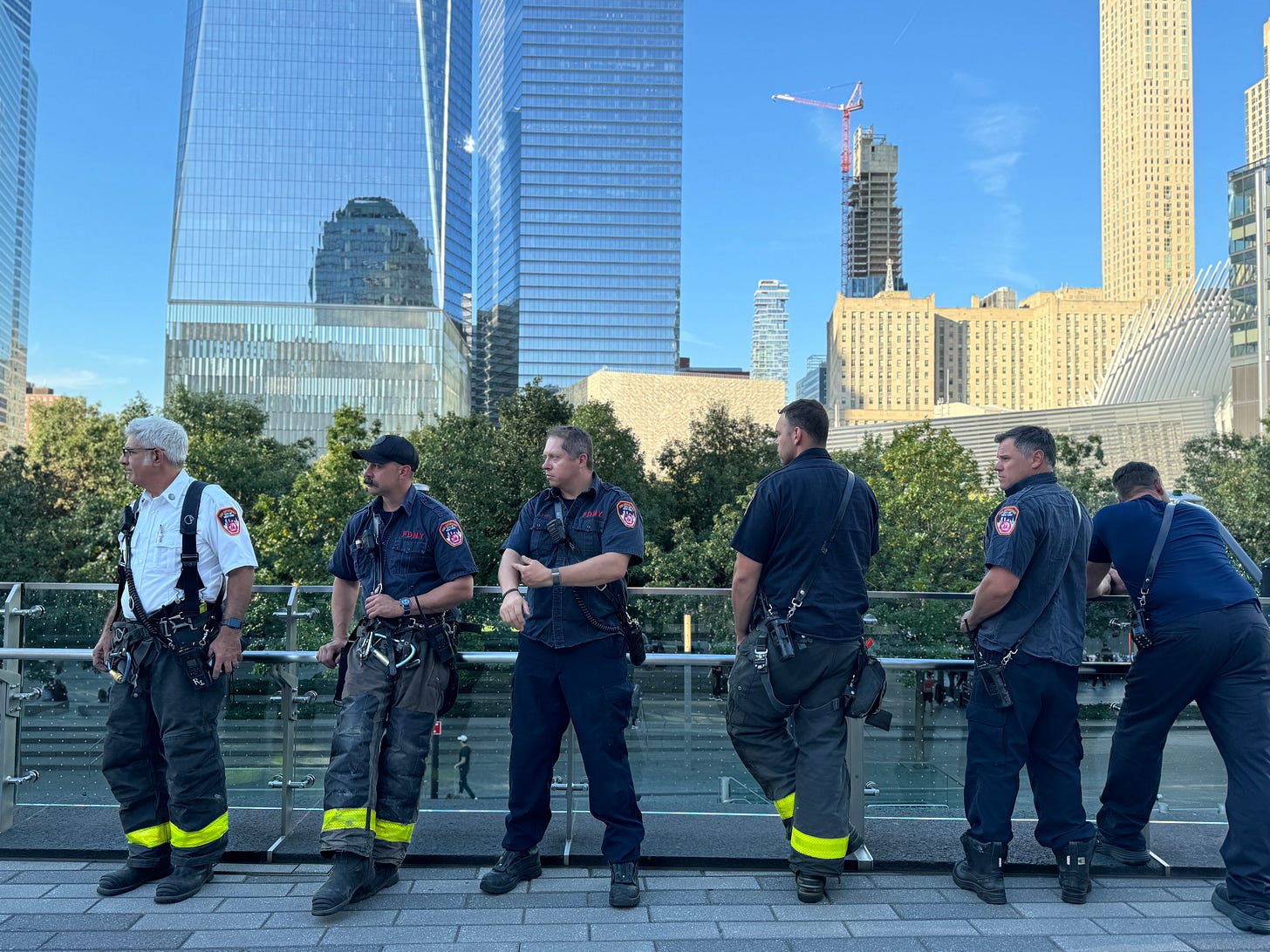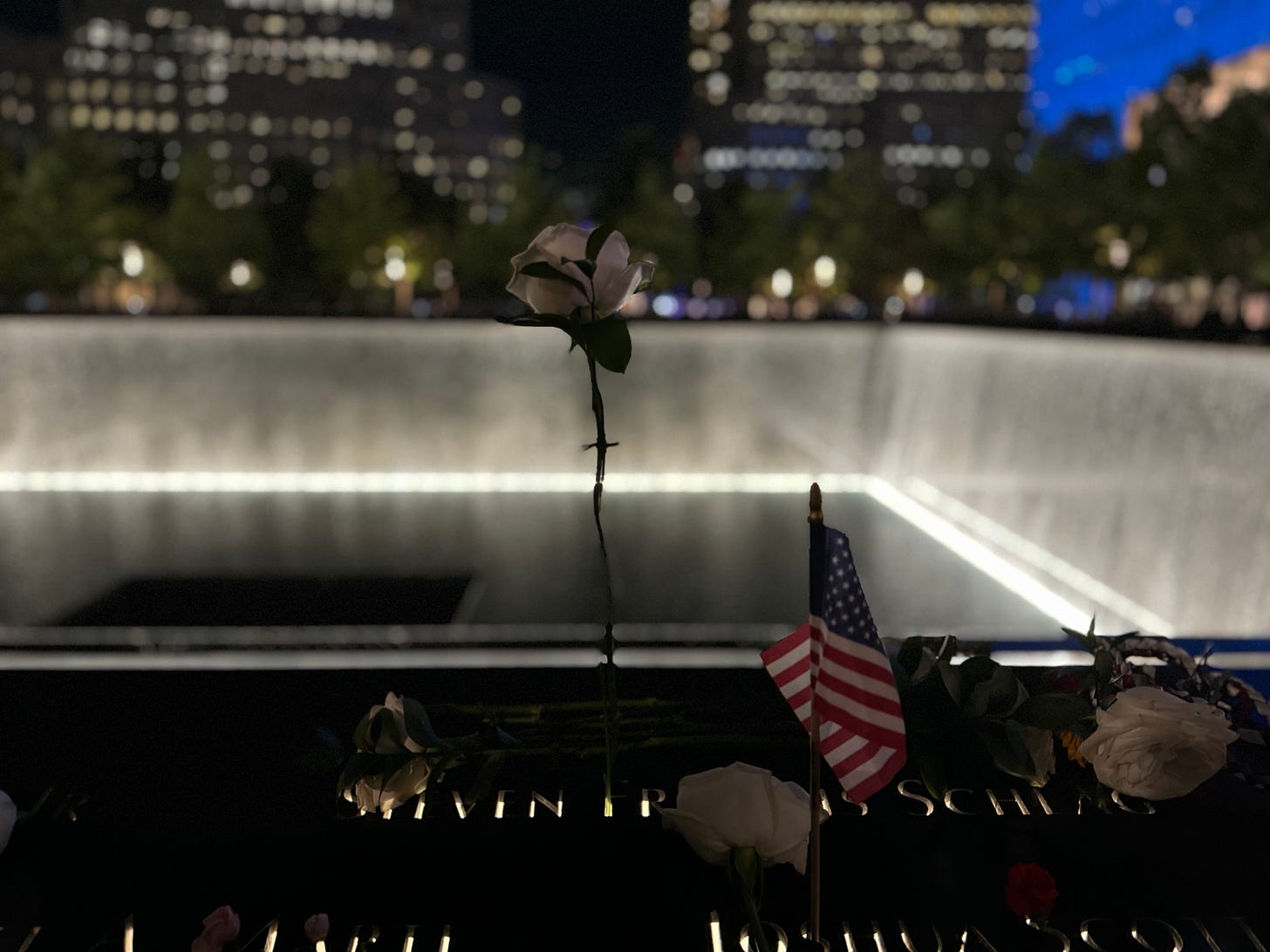Next gen terrorism

As Hezbollah’s pagers exploded in unison in Lebanon today, an unprecedented sight and operation which may lead the terrorists or their backer Iran to seek retaliation, it’s worth remembering that once upon a time, it took years to grow a terrorist.
“There was a process,” says Bernard Hudson, the CIA’s former Chief of Counterterrorism. “Even in the early stages of al-Qaeda, they had a process where they'd identify a person, they'd sit down with them, they'd be in study groups, they'd go from sort of one stage to the next. And it might take two years to take a guy who was just curious about their ideology to a committed member.”
Then came the Internet. And Bern invoked some words of Anwar al-Awlaki, an American-Yemeni cleric killed by a U.S. drone strike in the global war on terrorism, who said people can self-radicalize online.
I called Bern before catching a train to New York for the first ever Global Summit on Terrorism and Political Violence. It was held in the new Perelman Performing Arts Center, on the edge of the 9/11 Memorial. Outside, I could smell the sweet scent of countless flowers, their stems lodged in the engraved names of victims at the memorial pools. I passed by the site multiple times a day, going to and from my hotel. And it made the contents of the Soufan Center’s conference that much more real.
President Joe Biden, Vice President Kamala Harris, former President Donald Trump, and his running mate Senate J.D. Vance had just left the 9/11 Memorial ceremony. With so many high-profile political figures there, it was “the first time ever that we put them on an X, onto one of the most targeted places by terrorists in the world,” Greg Ehrie, the Chief Security Officer of the Port Authority of New York and New Jersey, said at the conference. But he feared that Americans may be lulled into a sense of complacency. “We use words like ‘never again’ and ‘never forget.’ And are we transitioning over to, 'There's no chance anymore and we're all fine?’”
As much as Biden has prioritized great power competition, Hamas’ Oct. 7 attack and Israel’s ensuing war have revitalized terrorist threats that never actually abated. Just in New York alone, 41 plots were averted in the last 11 years, said Rebecca Weiner, Deputy Commissioner of the NYPD’s Intelligence and Counterterrorism Bureau. She described their acceleration and diversifying ideologies — a Canadian-based, ISIS-inspired Pakistani who allegedly planned to attack a Brooklyn synagogue in the coming days; Iranian assassination attempts in New York; and the transnational Terrorgram Collective with efforts fanning from New Jersey to Turkey. “What I did not expect to see, and we are seeing it, is outright support for Hamas” and other U.S. designated terrorist groups “on the streets of our city, in a non-criminal context.”
What does the next generation of terrorists look like? Are they the children of men from Hezbollah who rushed into overcrowded hospitals, injured from detonated pagers today? ISIS kids raised in Syria’s al-Hol refugee camp? Are they the freshly made orphans in Gaza? Or the accelerationists in the U.S. and Europe, or the politically motivated extremists who go too far? Do they still need to take and hold territory, legitimizing themselves to slivers of the population? Or is their digital dust enough… and enough to catch them before they kill and maim?
“The next generation, and that's what we're seeing now, are individuals who are indirectly inspired to carry out attacks. They are self-selectors,” said Brian Jenkins, a terrorism expert and senior adviser to the president of the RAND Corporation. “In many cases, they see the ideology as a conveyor for their personal discontents.” His next words were especially chilling: “Terrorism in a sense has been atomized, if you will, down to individual decisions.”
And the youngest are apparently deciding. An increasing number of counterterrorism investigations have been opened on teenagers under the age of 15, said David Scott, Assistant Director of the FBI’s Counterterrorism Division. “This presents significant challenges for us because recent Supreme Court rulings complicate our ability to create federal terrorism charges against juveniles.”
And yes, yes, the drones and generative AI, 3-D printing, cryptocurrency, and general metaverse darkness. The ability to collect information on potential targets. The vulnerable power grids, water supplies, air traffic and aircraft control systems. I was told there are no longer barriers, and we’ll see technically impressive attacks that in the past, only nation states could wage. And from a chair in the crowd, it was hard not to feel a little helpless, not to get up and walk away feeling a little hopeless.
Bern had also brought up human augmentation. As a 2012 National Intelligence Council report stated, “Military organizations are experimenting with a wide range of augmentation technologies, including exoskeletons that allow personnel to carry increased loads and psychostimulants that allow personnel to operate for longer periods… Brain-machine interfaces could provide ‘superhuman’ abilities, enhancing strength and speed, as well as providing functions not previously available… Future retinal eye implants could enable night vision, and neuro-enhancements could provide superior memory recall or speed of thought.” The council predicted that by 2030, there could be a “two-tiered society of enhanced and non-enhanced” people, complete with hacking threats and “inevitable” moral and ethical challenges. Bern thinks Iran and North Korea are the countries to watch here.
Beyond the tools and tech for future terrorists is the psychology. And that is both established and evolving. Terrorist organizations still use gender to co-opt and radicalize, said Racheal Atley, head of research at the UN’s Counter-Terrorism Committee Executive Directorate. Some attacks correlate with “identity fusion,” when a personal identity becomes one with a group identity — even if a person simply connects through gruesome war photos shared on social media, said Julia Ebner, who leads Oxford’s Violent Extremism Lab.
When Bern told me that “human beings are believing machines,” I believed him. “If there's one thing that I came to believe about the type of person who becomes a terrorist, it has as much or more to do with their personal psychology as it does with the predicating events that they claim were the ones that pushed them over the edge,” he said.
Besides, terrorist leaders have often come from families of privilege and education, like Osama bin Laden and Ayman al-Zawahiri. They adopted grievances and had their own surprisingly strong moral compasses, just with arrows orienting in terrible directions.
Of course, the U.S. will continue to be the top target for foreign-focused terrorists. And as terrorism continues to evolve, so too does U.S. counterterrorism. This is what Bern had actually wanted to discuss before the conference, because he brings me there twice in the conversation.
He fears that tools of prevention may be too broadly applied. “All these tools we talk about for surveillance, they certainly give countries an ability to do a sort of pre-crime program where they start profiling people more and more aggressively,” Minority Report-style. “One might say, ‘Hey, that person is still engaging in protected speech online, but government X has decided that that person poses some sort of long-term risk. So we're going to limit that person's freedom.’ I think that's certainly going to happen… It's too attractive a tool for governments.” The same tools could also be repurposed to go after dissidents and opponents. (Something I previously reported on, under the crown prince in Saudi Arabia.)
Counterterrorism can also generate more terrorism, as the U.S. did in the early 2000s, as Israel has undoubtedly done in Gaza. And consider this afternoon in Lebanon, with the mass targeting of Hezbollah beepers. Nearly 3,000 people were wounded, including Iran’s ambassador to Lebanon, per Iranian state media.
“Heavy handed counterterrorism strategies will, in fact, galvanize and globalize threats,” Chris Costa, former Senior Director for Counterterrorism at the National Security Council, told attendees to the conference. “We have to be thoughtful collectively on how we're employing counterterrorism strategies. That may seem obvious, but it's crucial.”
It’s worth remembering. Because as future terrorists are born and bred, the threats only seem to grow more complex, and what is obvious is not guaranteed.





The Israeli operations in Gaza and beyond over the past almost a full year have increased my fear of creating generations of terrorists. It is not making Israel or the world safer.
Peace. Shalom. Salaam.
Steve, you must know as I know that the meeting of trump and Netanyahu at Mar-a-lago was all about an agreement to escalate the war in the Middle East to facilitate trump’s re-election and Bibi’s continued reign in Israel. It keeps them both out of prison and in power. Two monsters who think nothing of burning down the world to warm their hands. Future terrorists, future millions dead are but a mere inconvenience to both of them.